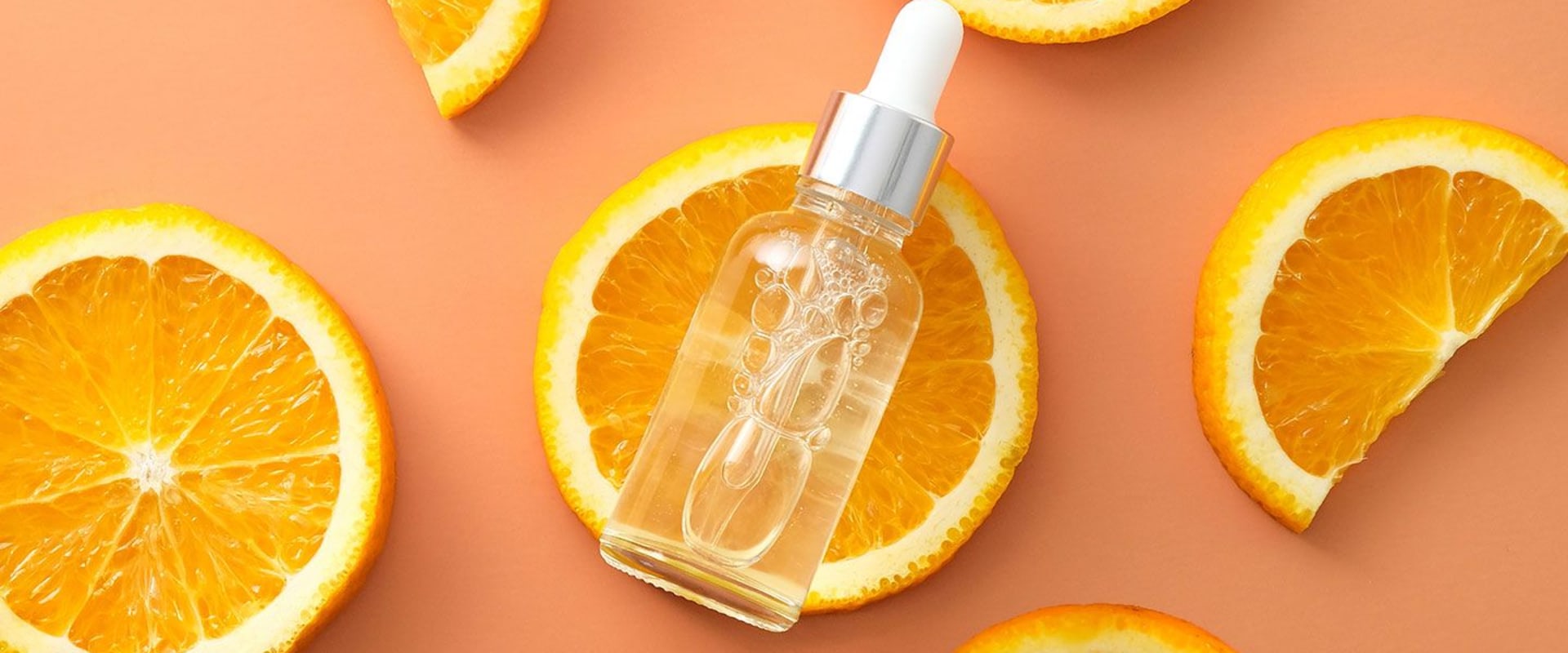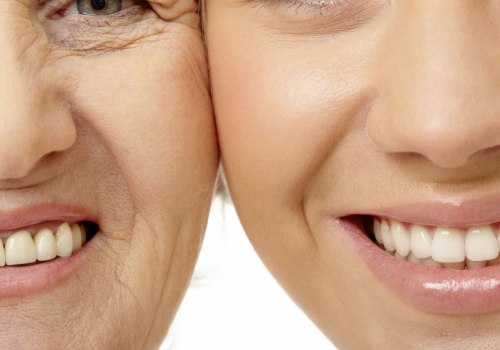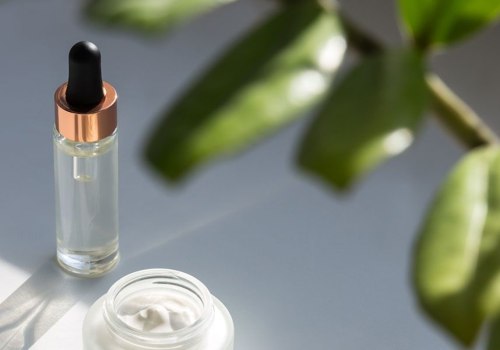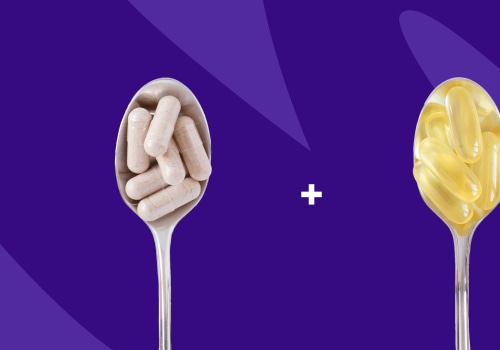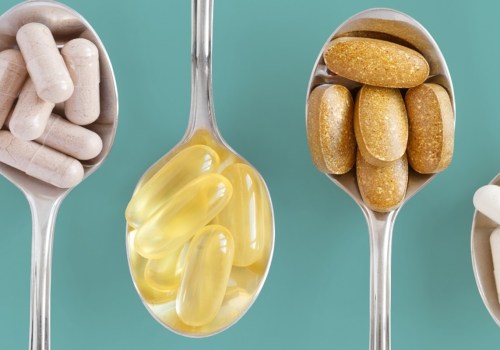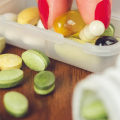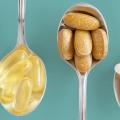Vitamin D is one of the best vitamins for the skin, along with vitamins C, E, and K. Making sure you're getting enough vitamins can keep your skin looking healthy and youthful. A 12-week study with 72 women showed that regularly taking a supplement containing 2.5 grams of collagen (along with several other ingredients) significantly improved the appearance of skin elasticity and smoothness. In addition to taking vitamin supplements, you can include vitamin A in your diet by eating beef liver, eggs, tomatoes, peppers, spinach, and carrots.
Vitamin A is the strongest argument for why you should move on after taking collagen supplements. This powerful vitamin prevents and delays the effects of aging both indoors and outdoors. Vitamin A is also known as retinol, which is the key ingredient in many anti-aging supplements and serums. Vitamin A is not naturally produced by our body, which means that it must be consumed by eating foods rich in it or taking it as a supplement.
And there are plenty of reasons to do so, because vitamin A is the gold standard when it comes to anti-aging. Tretinoin, which is derived from vitamin A, has been shown to increase collagen production and reduce wrinkles. It does this by interfering with the enzymes that break down collagen in the skin's dermal layer and instead promotes the creation of new collagen. Vitamin A not only helps the skin, but it also helps the inside.
It promotes better vision and a stronger immune system, and helps the heart and lungs work properly. Your insides also age, but you can slow down the process with the help of vitamin A. You may have heard of collagen, vitamin A, and vitamin D before, but it's likely that resveratrol is new to you. But it's time to get to know this small and powerful antioxidant, because it's one of the most powerful weapons against aging.
Basil seeds are very rich in minerals, especially zinc. I take only 1 teaspoon in a full glass of water. Let it soak for approximately 5 - 10 minutes. But one herbalist recommends 2 tablespoons with a teaspoon of honey at night.
And 2 tablespoons without honey in the oven. My dose also reduced hair loss. How many of these nutrition articles will I see that claim that you can get vitamin A from things like carrots? These, like most plant sources, contain beta-carotene, a retinol precursor that most of the human race cannot convert to retinol. There are some examples of this in conventional nutrition where they state things like this, and it's just not true.
That said, supplements can be tricky territory. You can't tell right away if these products really work, and the science behind beauty vitamins is gentle, meaning they lack a lot of concrete evidence, according to Dr. Sandy Skotnicki, founding director of the Bay Dermatology Centre in Toronto. Dr.
Joshua Zeichner, director of cosmetic and clinical research at Mount Sinai Hospital, agrees, adding that there is limited data showing the efficacy of oral supplements. Your best option for treating aging skin is to follow a good skincare routine, she says. But he does point out that certain supplements may help protect the skin barrier, while Dr. Skotnicki says that consuming a combination of antioxidants (such as vitamins A and E), as well as beta-carotene, lycopene, and omega-3 fatty acids can result in more supple skin.
Everyone touts vitamin C for its ability to prevent colds and the flu, but this powerful antioxidant can also improve skin texture and appearance. Sometimes referred to as ascorbic acid, Dr. Zeichner says it stimulates collagen production, which, in turn, can help reduce fine lines. Vitamin C is a powerful antioxidant that neutralizes free radical damage, prevents the production of abnormal pigmentation, and serves as an essential cofactor for healthy collagen production, he says.
Think of vitamin C as an insurance policy on your sunscreen to prevent damage. Likewise, vitamin E can help maintain the skin barrier when ingested, protecting the body from irritants and excessive water loss. Research suggests that older adults need more vitamin E than younger adults to maintain health during the aging process, so if you want to take an internal approach to healthy skin, it may help to make sure you're getting enough of this vitamin. Curcumin, the main active compound in turmeric, has strong antioxidant and anti-inflammatory properties, which can help maintain the skin by combating oxidative stress.
And since oxidative stress causes signs of aging, curcumin or turmeric supplements can help your skin look fresher (especially since research shows that curcumin activates certain proteins that help slow cellular decay). Also known as CoQ10, this antioxidant compound that the body produces naturally to help convert food into energy, has some scientific studies that suggest it may help reduce wrinkles and improve skin texture, said Dr. A review published in the journal Frontiers in Physiology found that CoQ10 supplements can alleviate age-related problems, including increased oxidative stress, while a study published in BioJournals found that a daily CoQ10 supplement significantly reduces wrinkles and improves skin smoothness. Also called niagen, nicotinamide riboside supports many aspects of healthy aging.
Niacinamide is a form of vitamin B3 that calms inflammation and brightens skin tone, said Dr. And like other forms of vitamin B3, the body converts niagen to nicotinamide adenine dinucleotide (NAD+), which works to repair damaged DNA and strengthen cells' defense systems. Since the amount of NAD+ in your body naturally decreases as you age, a Niagen supplement may help. Supplements can't replace a balanced diet, daily exercise, and SPF when it comes to protecting your skin.
And while supplements like curcumin, CoQ10, and vitamin C may offer age-promoting effects, they won't magically restore skin or take 10 years of life from your face overnight. The best way to promote longevity (and stay youthful for longer) is to take good care of yourself, keep stress at bay, and follow a skincare routine that works. The 12 Best Hobbies for Retired People. Vitamins are sometimes overlooked in the fight against aging compared to the wide variety of creams and serums, but research shows that vitamins are a key part of delaying the aging process.
If you have dry or aging skin, it's very important that you get enough vitamin E in your diet or through supplements. .
